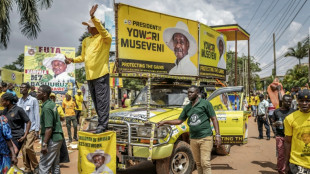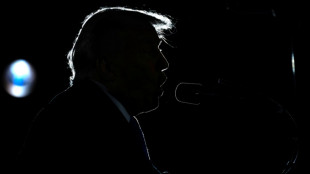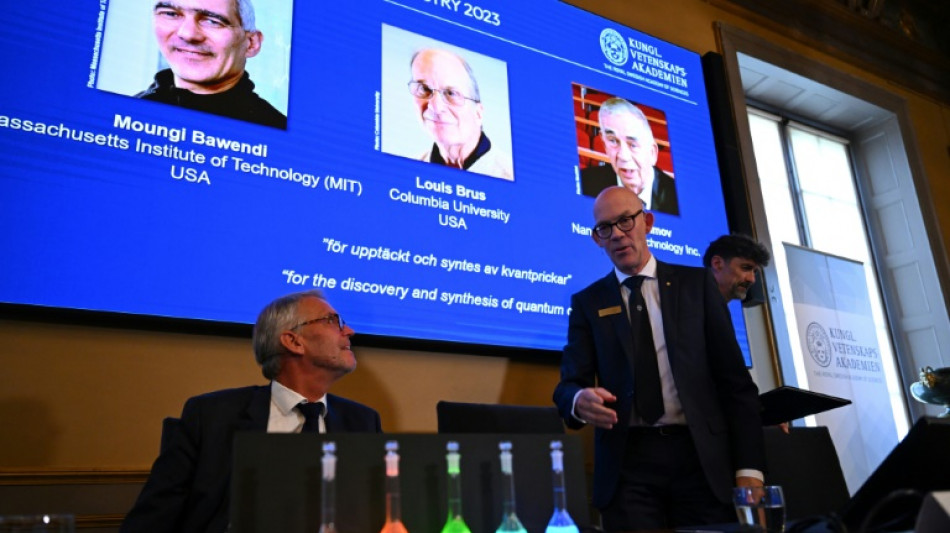
-
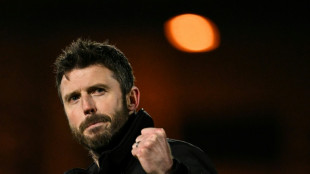 Carrick given Manchester derby baptism of fire, Frank in the firing line
Carrick given Manchester derby baptism of fire, Frank in the firing line
-
Trump announces 'board of peace' formed for Gaza

-
 Sam Darnold: the 'old soul' QB tipped to win Super Bowl
Sam Darnold: the 'old soul' QB tipped to win Super Bowl
-
One year on, it's all about Trump. But for how long?
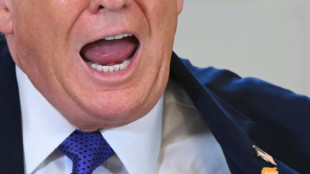
-
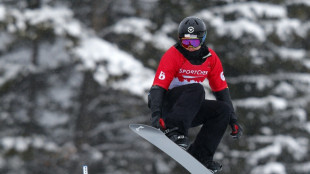 Australian snowboarder Brockhoff quits ahead of Winter Olympics
Australian snowboarder Brockhoff quits ahead of Winter Olympics
-
Bills battle Broncos as Allen eyes Super Bowl

-
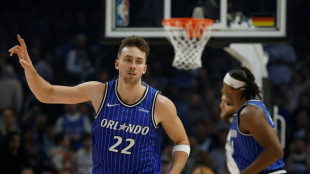 Magic rally to top Grizzlies in NBA Berlin game
Magic rally to top Grizzlies in NBA Berlin game
-
Venezuela's Machado says she 'presented' Trump with Nobel medal
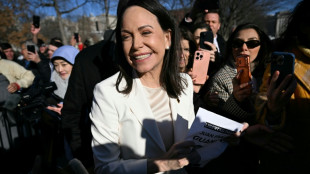
-
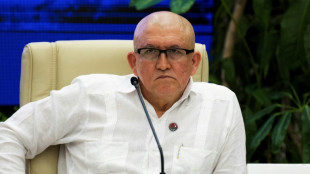 Key Colombia guerrilla group backs pact to fight US, commander tells AFP
Key Colombia guerrilla group backs pact to fight US, commander tells AFP
-
Chiefs' Mahomes targets NFL 'Week 1' after knee surgery

-
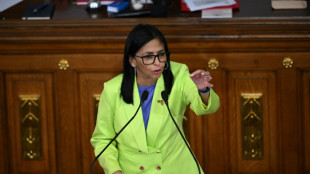 Venezuelan interim leader vows oil sector reform after Maduro ouster
Venezuelan interim leader vows oil sector reform after Maduro ouster
-
Social media sites block 4.7 million underage accounts in Australia
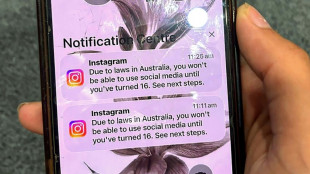
-
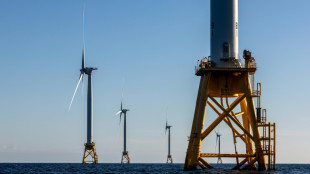 US court clears Norway's Equinor to resume wind project halted by Trump
US court clears Norway's Equinor to resume wind project halted by Trump
-
Threats to Iran spike 'volatility': UN official
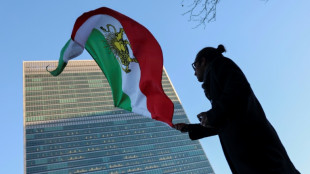
-
 Rabiot and AC Milan give Como French lesson to stay on Inter's heels
Rabiot and AC Milan give Como French lesson to stay on Inter's heels
-
US says reached deal with Taiwan to lower tariffs, boost investments
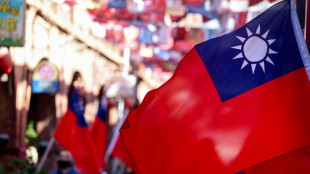
-
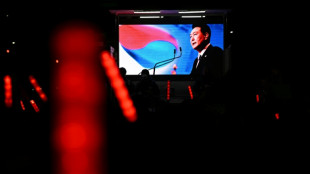 South Korea's ex-leader Yoon faces first court verdict over martial law chaos
South Korea's ex-leader Yoon faces first court verdict over martial law chaos
-
'Gigantic explosion', fire in Dutch city of Utrecht, four hurt

-
 Twenty-six charged in latest basketball gambling scandal
Twenty-six charged in latest basketball gambling scandal
-
Venezuela's Machado meets Trump for 'positive' talks despite snub
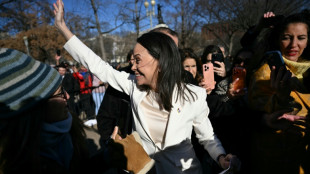
-
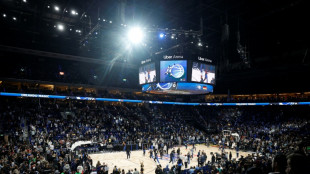 NBA Europe 'must respect tradition', says commissioner Silver
NBA Europe 'must respect tradition', says commissioner Silver
-
Thieves steal Pokemon cards in armed robbery at US store
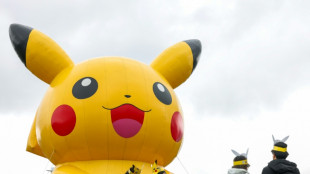
-
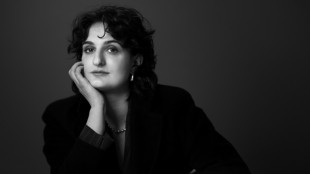 French Olympic champion Papadakis claims she was under partner's 'control'
French Olympic champion Papadakis claims she was under partner's 'control'
-
Fury over Grok sexualized images despite new restrictions
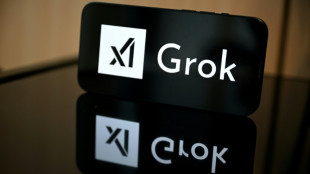
-
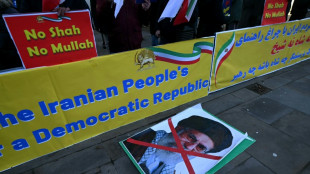 US says Iran halts executions as Gulf allies pull Trump back from strike
US says Iran halts executions as Gulf allies pull Trump back from strike
-
Frank says Spurs taking 'small steps' in right direction

-
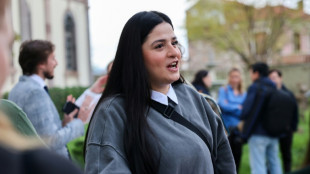 Syrian activist Sarah Mardini acquitted of migrant trafficking in Greece
Syrian activist Sarah Mardini acquitted of migrant trafficking in Greece
-
Goldman Sachs' profits jump on hot merger market
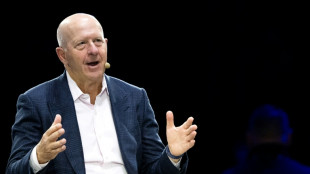
-
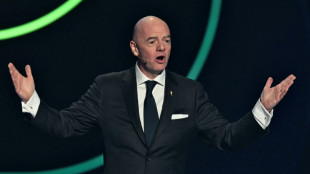 Platini says Infantino has become 'more of an autocrat'
Platini says Infantino has become 'more of an autocrat'
-
Scottish Borders, Lake District to grace 2027 Tour de France

-
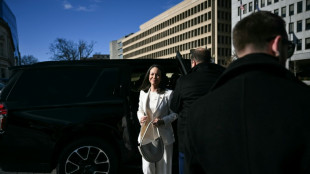 Venezuela's sidelined Machado arrives at White House for Trump talks
Venezuela's sidelined Machado arrives at White House for Trump talks
-
French mother superior bullied nuns at Paris order: inquiry
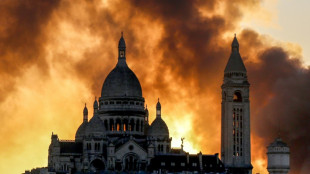
-
 Cuba pays tribute to soldiers killed in Maduro capture
Cuba pays tribute to soldiers killed in Maduro capture
-
UK politician joins hard-right Reform just hours after Tories sack him
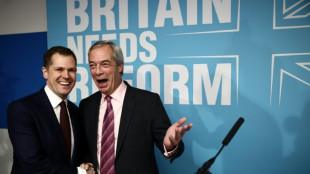
-
 'Gigantic explosion', fire in Dutch city, four hurt
'Gigantic explosion', fire in Dutch city, four hurt
-
French mother superior bullied nuns at Paris convent - inquiry
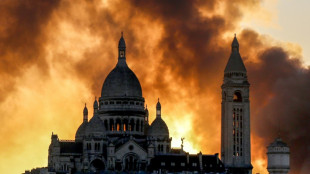
-
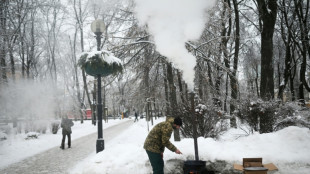 Deprived of heating, Kyiv enters survival mode to beat big freeze
Deprived of heating, Kyiv enters survival mode to beat big freeze
-
Oil prices slump after Trump eases concerns over Iran
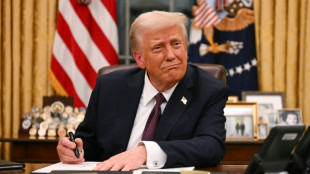
-
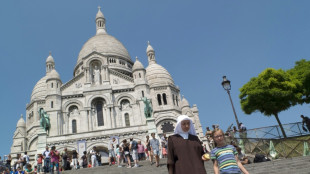 French mother superior bullied nuns in Montmartre: report
French mother superior bullied nuns in Montmartre: report
-
Rosenior refuses to back Sanchez as Chelsea number one
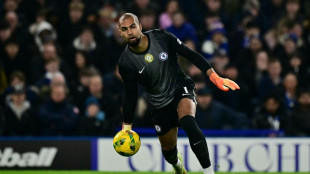
-
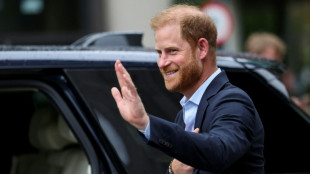 Harry due to testify to UK court next week in last tabloid case
Harry due to testify to UK court next week in last tabloid case
-
Trump threatens to invoke Insurrection Act over Minnesota protests

-
 Niger faces dilemma over uranium shipment stuck at airport
Niger faces dilemma over uranium shipment stuck at airport
-
UN chief attacks world leaders putting cooperation on 'deathwatch'
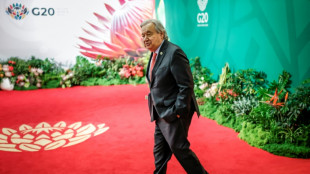
-
 Morocco and Senegal prepare for final showdown but Salah's AFCON dream fades
Morocco and Senegal prepare for final showdown but Salah's AFCON dream fades
-
Polls close in Uganda after delays, internet blackout
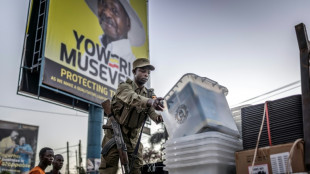
-
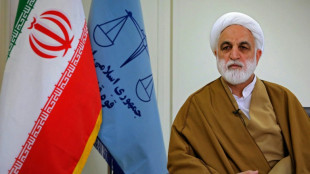 Forced confession fears as Iran chief justice interrogates protesters
Forced confession fears as Iran chief justice interrogates protesters
-
Al-Attiyah closes on sixth Dakar Rally as Ekstrom wins 11th stage

-
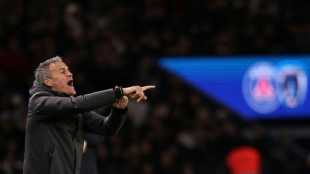 Luis Enrique has no doubts about PSG's title credentials
Luis Enrique has no doubts about PSG's title credentials
-
England off-spinner Bashir signs for Derbyshire after Ashes exile
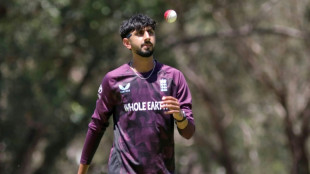

Trio win chemistry Nobel for 'quantum dots' after leak
A trio of US-based researchers on Wednesday won the Nobel Chemistry Prize for developing tiny "quantum dots" used to illuminate TVs and lamps, hours after a prematurely sent statement revealed their names.
French-born Moungi Bawendi, Louis Brus of the United States and Russian-born Alexei Ekimov brought advances on tiny particles that "now spread their light from televisions and LED lamps, and can also guide surgeons when they remove tumour tissue," the jury said.
But a rare leak led to the winners' names being mistakenly sent to media outlets hours before they were officially announced, prompting an apology from the awards' overseers.
Hans Ellegren, Secretary General of the Royal Swedish Academy of Sciences, said a press release went out for "still unknown reasons."
"We deeply regret that this happened. The important thing is that it did not affect the awarding of the prize recipients in any way," Ellegren said during a press conference.
- 'Sound asleep ' -
However, Bawendi told reporters he had not heard the news before receiving the call from the Nobel Committee.
"I didn't know, I was I was awakened by the Swedish Academy. I was sound asleep," he said via telephone during a press conference, noting it he had not expected the call.
Bawendi listed his feelings as "very surprised. Sleepy, shocked. Unexpected and very honoured."
Nobel leaks are rare, with the various prize-awarding academies going to great lengths to keep the winners' names under wraps until the announcements.
Bawendi, 62, born in Paris to French and Tunisian parents, is a professor at Massachusetts Institute of Technology (MIT) in the United States.
Brus, 80, is a professor at Columbia in New York, and Russian-born Alexei Ekimov, 78, was formerly the chief scientist at the US-based Nanocrystals Technology.
- 'Almost perfect' -
According to the jury, physicists had "long known" about the quantum effects that could arise in nanoparticles, but previously it was "impossible to sculpt in nanodimensions."
In the early 1980s, Ekimov "succeeded in creating size-dependent quantum effects in coloured glass," and a few years later, Brus was the first "to prove size-dependent quantum effects in particles floating freely in a fluid."
"In 1993, Moungi Bawendi revolutionised the chemical production of quantum dots, resulting in almost perfect particles. This high quality was necessary for them to be utilised in applications," the jury explained.
In addition to their current use, they are believed to to be able to contribute to flexible electronics, tiny sensors, thinner solar cells and encrypted communication in the future, with the Academy noting that "we have just started exploring the potential of these tiny particles."
The trio will share the award of 11 million Swedish kronor (around $1 million) and will receive the prize from King Carl XVI Gustaf at a ceremony in Stockholm on December 10, the anniversary of the 1896 death of scientist Alfred Nobel who created the prizes in his last will and testament.
The chemistry award is the third Nobel of the season after the medicine prize and the physics prizes were announced earlier in the week.
In medicine, RNA researchers Katalin Kariko and Drew Weissman were honoured Monday for their groundbreaking technology that paved the way for mRNA Covid-19 vaccines.
The physics prize on Tuesday went to France's Pierre Agostini, Hungarian-Austrian Ferenc Krausz and Franco-Swede Anne L'Huillier for research using ultra quick light flashes that enable the study of electrons inside atoms and molecules.
The highly watched literature and peace prizes, will be announced on Thursday and Friday respectively.
The Economics Prize -- created in 1968 and the only Nobel not included in the 1895 will of Swedish inventor and philanthropist Alfred Nobel founding the awards -- closes out the 2023 Nobel season on Monday.
Q.Bulbul--SF-PST


